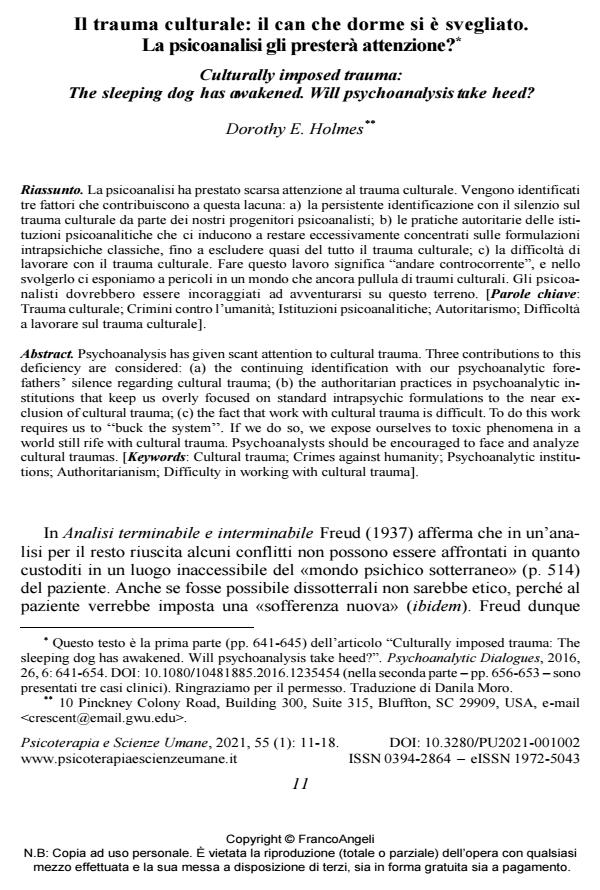Culturally imposed trauma: The sleeping dog has awakened. Will psychoanalysis take heed?
Journal title PSICOTERAPIA E SCIENZE UMANE
Author/s Dorothy E. Holmes
Publishing Year 2021 Issue 2021/1
Language Italian Pages 8 P. 11-18 File size 275 KB
DOI 10.3280/PU2021-001002
DOI is like a bar code for intellectual property: to have more infomation
click here
Below, you can see the article first page
If you want to buy this article in PDF format, you can do it, following the instructions to buy download credits

FrancoAngeli is member of Publishers International Linking Association, Inc (PILA), a not-for-profit association which run the CrossRef service enabling links to and from online scholarly content.
Psychoanalysis has given scant attention to cultural trauma. Three contributions to this deficiency are considered: (a) the continuing identification with our psychoanalytic fore- fathers’ silence regarding cultural trauma; (b) the authoritarian practices in psychoanalytic institutions that keep us overly focused on standard intrapsychic formulations to the near exclusion of cultural trauma; (c) the fact that work with cultural trauma is difficult. To do this work requires us to "buck the system". If we do so, we expose ourselves to toxic phenomena in a world still rife with cultural trauma. Psychoanalysts should be encouraged to face and analyze cultural traumas.
Keywords: Cultural trauma; Crimes against humanity; Psychoanalytic institutions; Authoritarianism; Difficulty in working with cultural trauma
Dorothy E. Holmes, Il trauma culturale: il can che dorme si è svegliato. La psicoanalisi gli presterà attenzione? in "PSICOTERAPIA E SCIENZE UMANE" 1/2021, pp 11-18, DOI: 10.3280/PU2021-001002